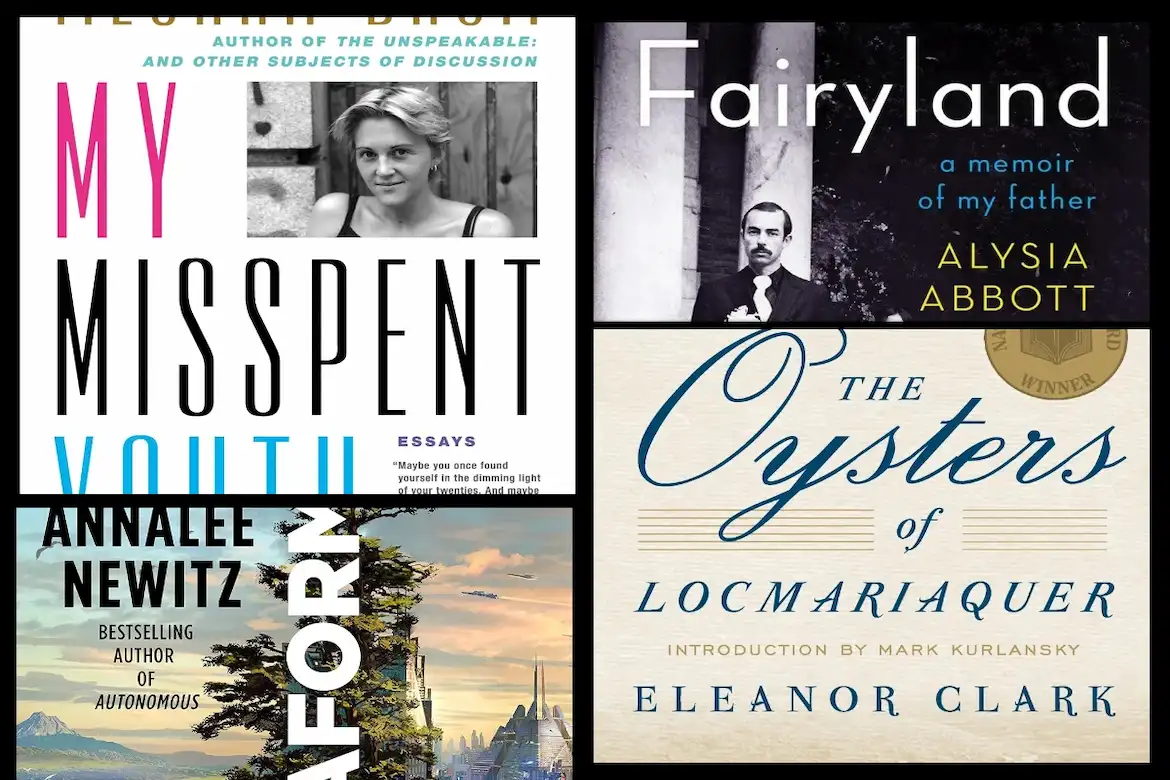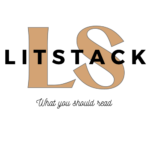For Women’s History Month, #WomensHistoryMonth, here are three memoirs that portray a range of women’s lives, from mid-century summers in Brittany, to pre-9/11 ambitions of a young woman, to growing up motherless with a gay father in 1970s San Francisco.

In This LitStack Rec for Women’s History Month:
The Oysters of Locmariaquer, by Eleanor Clark
The Oysters of Locmariaquer (first published in 1964) is not a memoir per se, and yet it reads as one. The book is a biography of a place, containing history, science, literature, oyster cultivation, habitat, and the local life, which at the time of the book’s writing, was caught between the old ways and the new—it’s also a document of the Clark’s summers in Brittany, with her husband, Robert Penn Warren, and their children.
Clark seems to know virtually everything about this corner of northwestern France, the Celtic peninsula where Bretons have cultivated oysters for centuries—starting with a variety called Belon, or les plattes. You may not have heard of the famed oysters of Brittany, but they’re on the Smithsonian’s list of 1000 Things You Should Eat Before You Die.
Clark’s collagist style never quite places her at the center of her narrative, whether as a central actor or a minor player—never once does Clark cast herself in that role. There’s not one “I” in The Oysters of Locmariaquer. Though there’s no need. Clark is present in every line. Read the full review here.


My Misspent Youth: Essays, by Meghan Daum
The essays in My Misspent Youth (2001) offer what Ira Glass called “a clarity and intensity that just makes you feel awake.”
The title essay, which first appeared in the New Yorker, centers not so much on the coming-of-age follies of Daum’s youth, but on the realities that plague her when she finally arrives in the Shangri-La of her imagination, Manhattan. The thrill of arrival and personal edification in living in a place you’ve always dreamed of is covered as well in Life Would Be Perfect. Here though, the focus is less on the ineffable pull of certain domiciles and on the title’s literal meaning: the level of debt the author accrues working a low-paying editorial job and living in New York City. Read my full review here.


Fairyland: A Memoir of My Father, by Alysia Abbott
Raised motherless by a young, talented, and emotionally vulnerable man—the artist, poet, editor, and activist Steven Abbott—yet Alysia Abbott never portrays herself as a victim of her father’s shortcomings. Instead, in Fairyland: A Memoir of My Father (2013), she sheds light on her own transgressions. The clear-eyed account and equitable tone keep the narrative both generous and engaging, and produces a memoir that reads both as a document of the time and a personal account of a daughter’s “mistakes,” ones for which she feels culpable—judging her father for his appearance and behavior and feeling ashamed because he is gay.
It’s impossible not to feel a sense of worry for the girl left at home with strangers, or sometimes alone, and this tension drives the account’s early years. A motherless girl, like a fatherless son, is vulnerable in a particular and tender way, and Abbott clearly shows their mix of difficulty and freedom. Read the full review here, and read about Fairyland, the feature film, here.
~ Lauren Alwan


The Terraformers, by Annalee Newitz
It’s 50,000+ years in the future in Annalee Newitz’s far future novel, and goodness are things different. Beings are not born, they are “decanted” for specific roles and purposes, and the blanket term “human” is no longer a thing – although hominins (human-like beings who can live for hundreds of years), homosapiens, and homodiversus (a “catchall subspecies name for hundreds of customized hominin builds”) are human presenting. But h. sapiens are the only beings who could “truly nurture the terroir of Earthlike ecosystems”, and the privately held planet Sask-E (known on planet as Sasky) is being terraformed to become an “Earth-away-from-Earth, a special world that honored humanity’s origins,” bolstering their apex caste status.


However, human presenting beings are not the only highly sentient creatures in this future. Moose, cows, cats, drones, naked mole rats, and remotes presenting as combinations (organic and inorganic, even) all communicate and interact in society. Yup. A hominin would not even bat an eye at a talking cow – one that can fly – or discount a naked mole rat as just a stupid animal.
However, for all it’s strangeness and just plain different-ness, things are still the same. There is a casual bigotry that is plain to see, dependent on a creature’s “intelligence assessment” (mockingly known as an “InAss” rating), often which is built into a creature’s decanting. For instance, a hominin known as “Blessed” are decanted to fill particular service roles – such as a chef – and insomuch, can only speak of things associated with their job: the chef can only speak of food and food preparation. Mounts – creatures considered low on the InAss rating, can only speak words that are mono-syllabic. The beings in those bodies may have more complex thoughts and feelings, but they cannot express them.
The novel introduces us to Destry, a hominin decanted to be a ranger with the Environmental Rescue Team (ERT) on Sasky, who, along with her moose mount, Whistle, patrol the Maskwa continent taking readings on her organic sensors and ensuring that the developing planet is kept in strict environmental balance per the guidelines of Verdance, the corporation responsible for Sasky’s terraformation. But when Destry and her team stumbles across a clandestine community of h. archaeans – a subspecies of h. diversus built during the first phase of the terraforming operation that was supposed to have died out a thousand years earlier – that the social balance of Sasky is thrown into turmoil, both morally and politically.
The Terraformers is a sparkling, ingenious novel that almost fairy-tale delights at the character level (I mean, talking naked mole rats!) and yet carries a lot of emotional punch as corporate greed, gentrification, social bias, discrimination and pettiness show us that the future is not all that different from the present – but also that grassroots revolution, thinking outside the norm, and caring beyond yourself can still go far in winning the day, despite the cost. This book is in turn mind-blowing, endearing, and enraging; no, strike that – it’s all those things but constantly mind-blowing (oh, my gosh, Whistle’s story arc is in and of itself amazing). It’s definitely worth checking out.
—Sharon Browning
Other LitStack Resources
Be sure and look at our other LitStack Recs for our recommendations on books you should read, as well as these reviews by Lauren Alwan, and these reviews by Sharon Browning.
As a Bookshop, Malaprop’s, BAM, Barnes & Noble, Audiobooks.com, Amazon, and Envato affiliate, LitStack may earn a commission at no cost to you when you purchase products through our affiliate links.



Comments are closed.